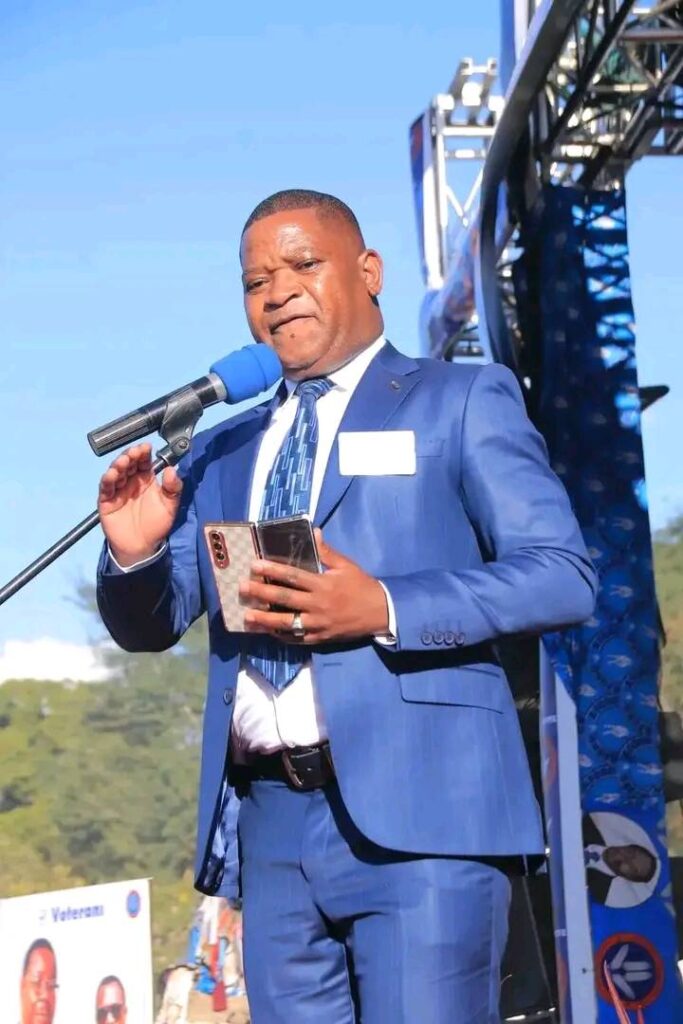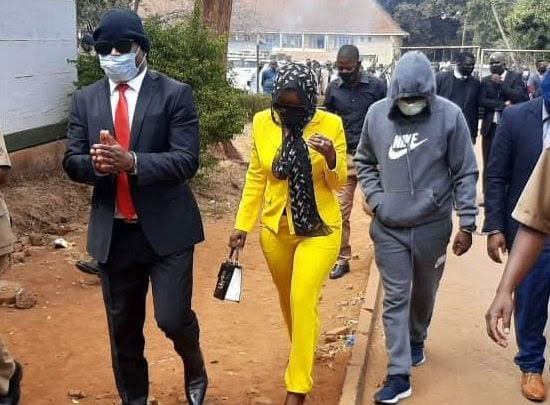Malawi is a very strange place. A nation that applauds the very architects of its own downfall. It is a country where convicted criminals are paraded as statesmen, looters are granted hero status, and suspected fraudsters headline political manifestos with grand promises of “houses for every civil servant” and K5 billion allocations per constituency, promises so outrageous.
Elsewhere these promises would be laughable and received with disdain that they deserve and as tragically insulting to the citizenry.
Now, this time around, at the center of this maddening charade is one man: Dr. Collins Magalasi.
The former Chief Executive Officer of the Malawi Energy Regulatory Authority (MERA), Magalasi is no stranger to fraud, looting and corruption. His name is already woven into the long, bloodstained tapestry of Democratic Progressive Party (DPP) era scandals that brought Malawi’s economy to its knees.
And yet, in the most stunning twist of irony, the DPP has elevated him to become the face and voice of its 2025 manifesto, the man entrusted with articulating the party’s vision for Malawi’s future.
Let that sink in.
A man facing fraud and money laundering charges and arrested multiple times, including alongside DPP blue-eyed boys former Secretary to the Treasury Cliff Chiunda and ex-Secretary to the President and Cabinet Lloyd Muhara, is now being cheered as the chief architect of Malawi’s political and economic rebirth?

Magalasi’s very presence at the DPP’s frontlines is not just a slap in the face of the Malawian taxpayer, it is a deliberate act of provocation. It is the DPP, once again, spitting in the faces of the citizens and daring them to do something about it.
This madness is not just about one man. Magalasi’s rise back to the top is emblematic of a broader problem within the DPP, a party that seems wholly incapable of cleansing itself.
Since 2020, when Malawians voted the DPP out of power after a judicially nullified 2019 election, the expectation was that the party would take time to reflect, reform, and reconnect with the people. Instead, what we’ve witnessed is an aggressive rehabilitation of individuals who should, by any logical measure, be nowhere near the levers of power. These are people whose rightful home is within the prison cells.
Instead of distancing itself from these ghosts of corruption, the DPP is dancing with them.
Just look at the current roster. Norman Chisale, former bodyguard and errand boy turned millionaire whose wealth remains a mystery, is now allegedly pulling strings behind the scenes and then Jane Ansah, the electoral chair who presided over the discredited 2019 elections, is now a running mate.
Now, enter Dr. Collins Magalasi, a man who has been in and out of courtrooms answering different charges around misusing of public money and corruption, is shaping policy?
This isn’t just political malpractice. It is fraud. It is a scam. And unless Malawians wake up from this national hypnosis, they will be voting in September not for leadership, but for the right to be robbed again.

Magalasi’s time at MERA was littered with controversies. From illegal procurement deals to bloated fuel contracts, there was always something off about how he ran things. He was once arrested in a case involving procurement of an off-the-radar public relations firm for MERA, a contract awarded without due process and to a company owned by his girlfriend.
He has also been questioned for influencing tenders and side-lining technical teams to push decisions favorable to political cronies.
Yet here he is, talking about “devolving the money” in the DPP’s manifesto. Which money? Or the billions that vanished during his tenure at MERA to support and bankroll DPP activities?
What Magalasi and the DPP are selling is not a vision. It is a ponzi scheme dressed in blue regalia and slogans.
Perhaps the most heartbreaking aspect of this entire story is not what Magalasi or the DPP are doing, but what ordinary Malawians are failing to do.
The rot in our politics is not just because of crooked politicians. It is sustained by a culture of mass amnesia and blind hero worship. When the likes of Magalasi or Chisale or Jane Ansah show up at rallies, they are not booed. They are cheered. They are treated as liberators, saviors while in reality, they are simply reclaiming the keys to the vault.
What’s worse, those who dare to speak up are often ridiculed. Activists are dismissed as “attention seekers.” Journalists are called “haters.” Civil society is accused of being on payroll. The result? The system remains intact. The looters return with better suits, slicker speeches, and Facebook livestreams. And the people? They clap. They dance. And then they suffer.
If the DPP wins this election and Magalasi, Chisale, and others are reinstated into the political bloodstream, Malawi’s fragile institutions may never recover. This isn’t just about budget overruns or donor suspensions; this is about the moral collapse of a country.
Collins Magalasi is not an isolated case. He is the poster child for an entire DPP generation of politically connected elites who believed that accountability is optional and consequences are negotiable.
Let us be clear, and this is a warning, not a prophesy. This is not about party politics. It’s not about blue vs. green. This is about survival of a nation. This is about refusing to normalize corruption. If Malawians are serious about wanting change, they must stop elevating criminals to positions of influence.
It is not enough to be angry on Facebook. It is not enough to complain at the market. If the electorate cannot reject individuals like Magalasi at the ballot box, then they forfeit the moral right to complain about the looting and theft of their resources.
As the September 16 election nears, every Malawian must act decisively. Make no mistake, these people are not returning to fix Malawi. They are returning to finish what they started, to continue looting and turning state institutions into ATM machines for the privileged few.
And if we clap for them again, we will only have ourselves to blame.








